Join us on our journey towards renewable energy excellence, where knowledge meets innovation.
Although Renewables have gained significant ground in 2023, their revenue streams may be on the verge of getting compromised.

Capture and Wholesale Prices in Germany have decreased significantly in 2023 compared to 2022. But why is this happening?
Recent data analysis shows a significant price drop in Capture and Wholesale Prices for Solar PV and Wind energy in Germany during the first half of 2023, compared to the previous year during the same period. Factors such as political events and a mild winter have been major contributors to this deviation.
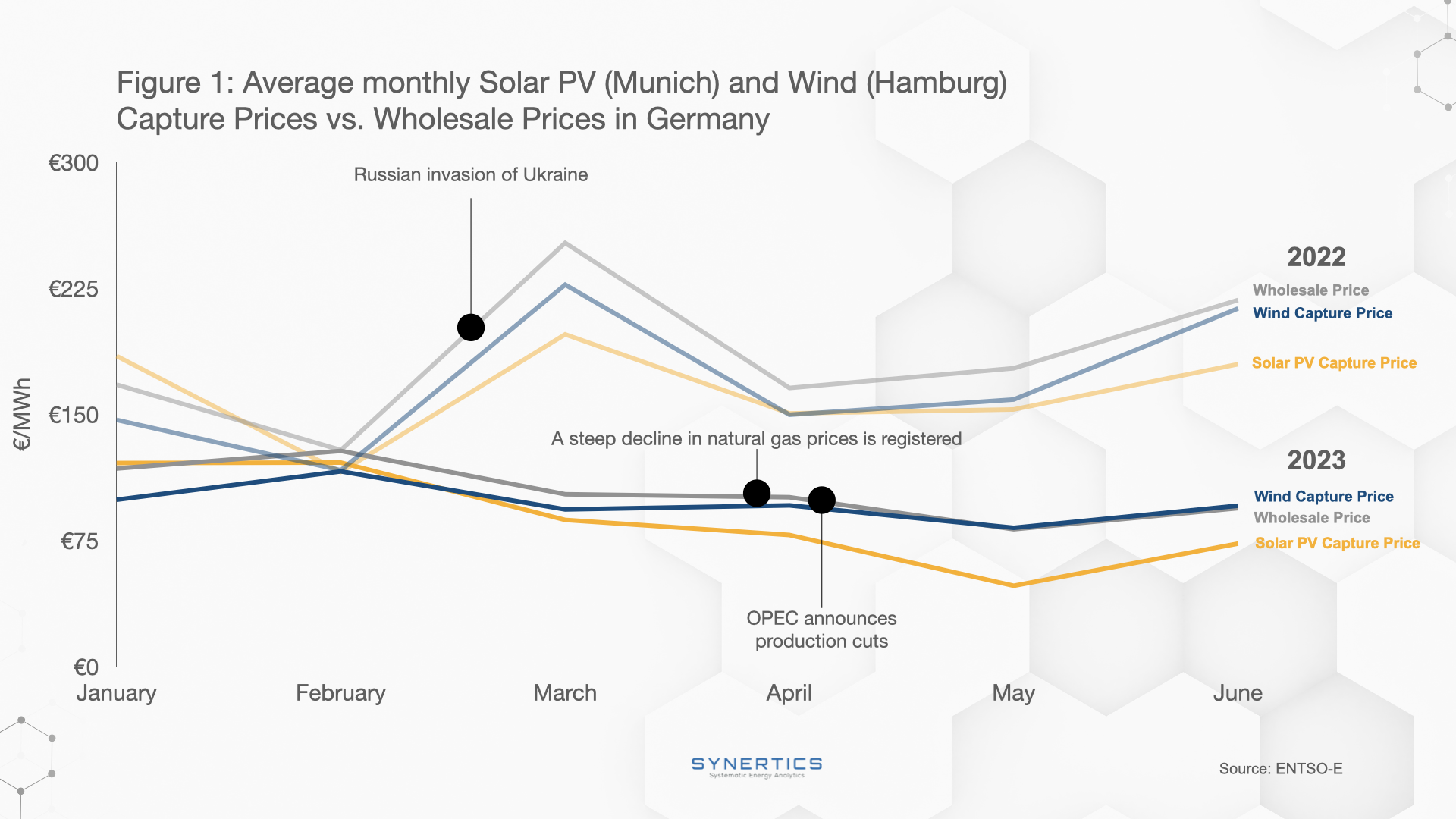
In the first half of 2023, Germany achieved a record share of renewable energy in its electricity generation (57,7%). Solar PV and Wind both experienced growth, indicating a positive trend in the utilisation of renewable energy sources in the country.
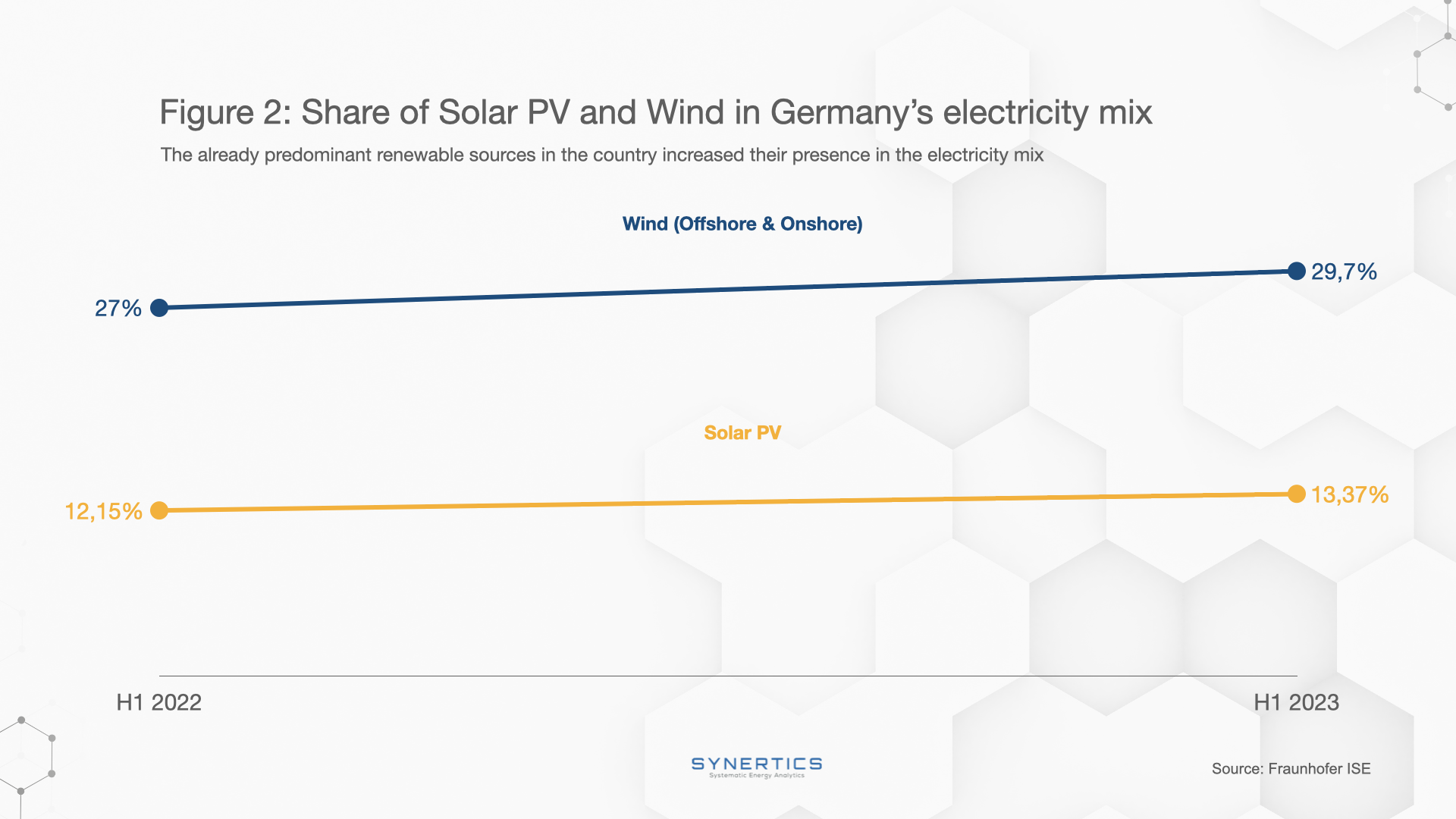
Germany has increased its generation capacity for Solar PV and Wind energy in 2023 compared to the previous year, which is likely to have contributed to the drop in Capture Prices due to the cannibalization effect.
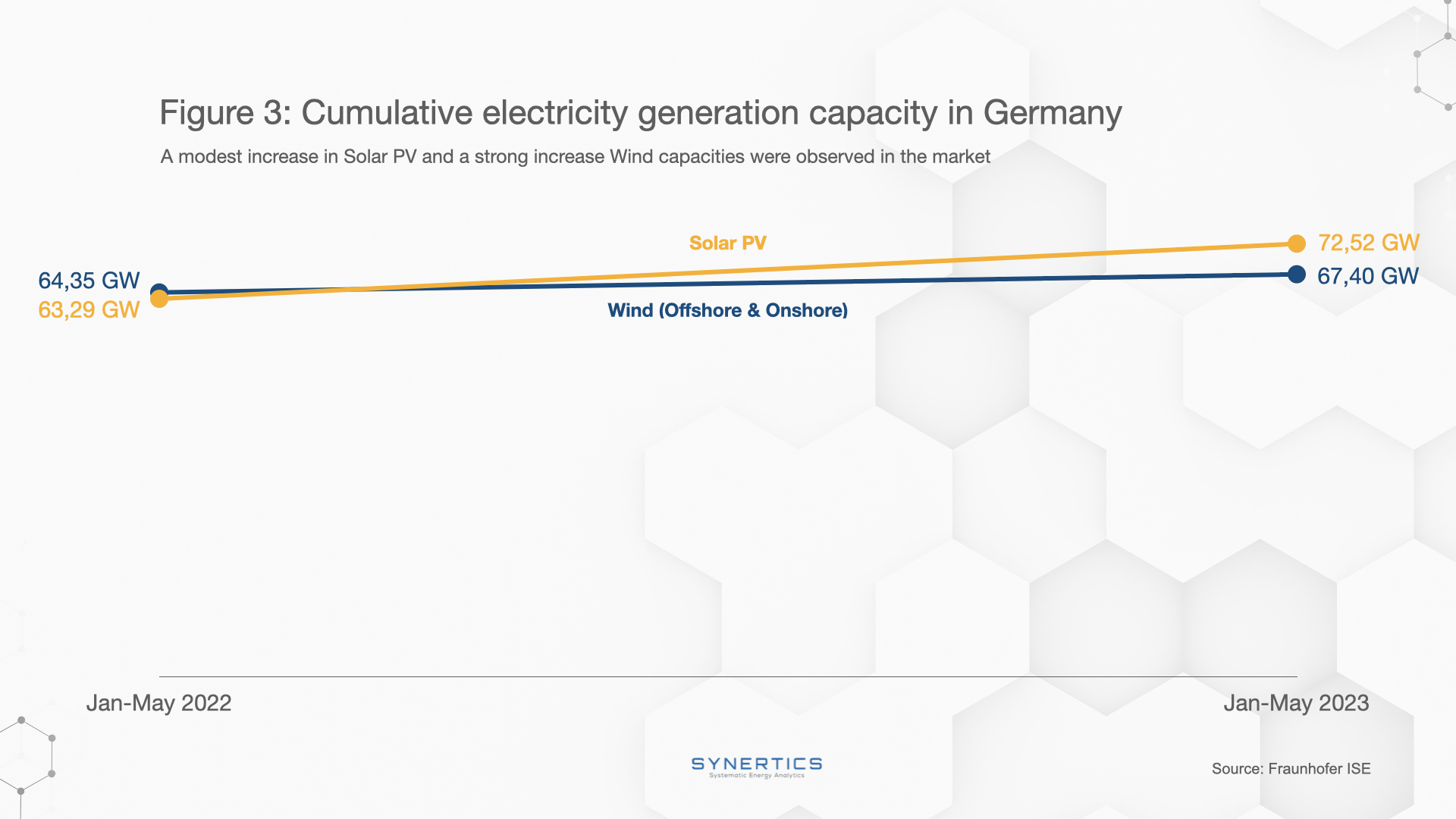
There was a slight decrease (- 1 TWh) in the total electricity generation from solar and wind energy sources in Germany's electricity market during the first half of 2023 compared to the same period in 2022, which usually leads to higher capture rates.
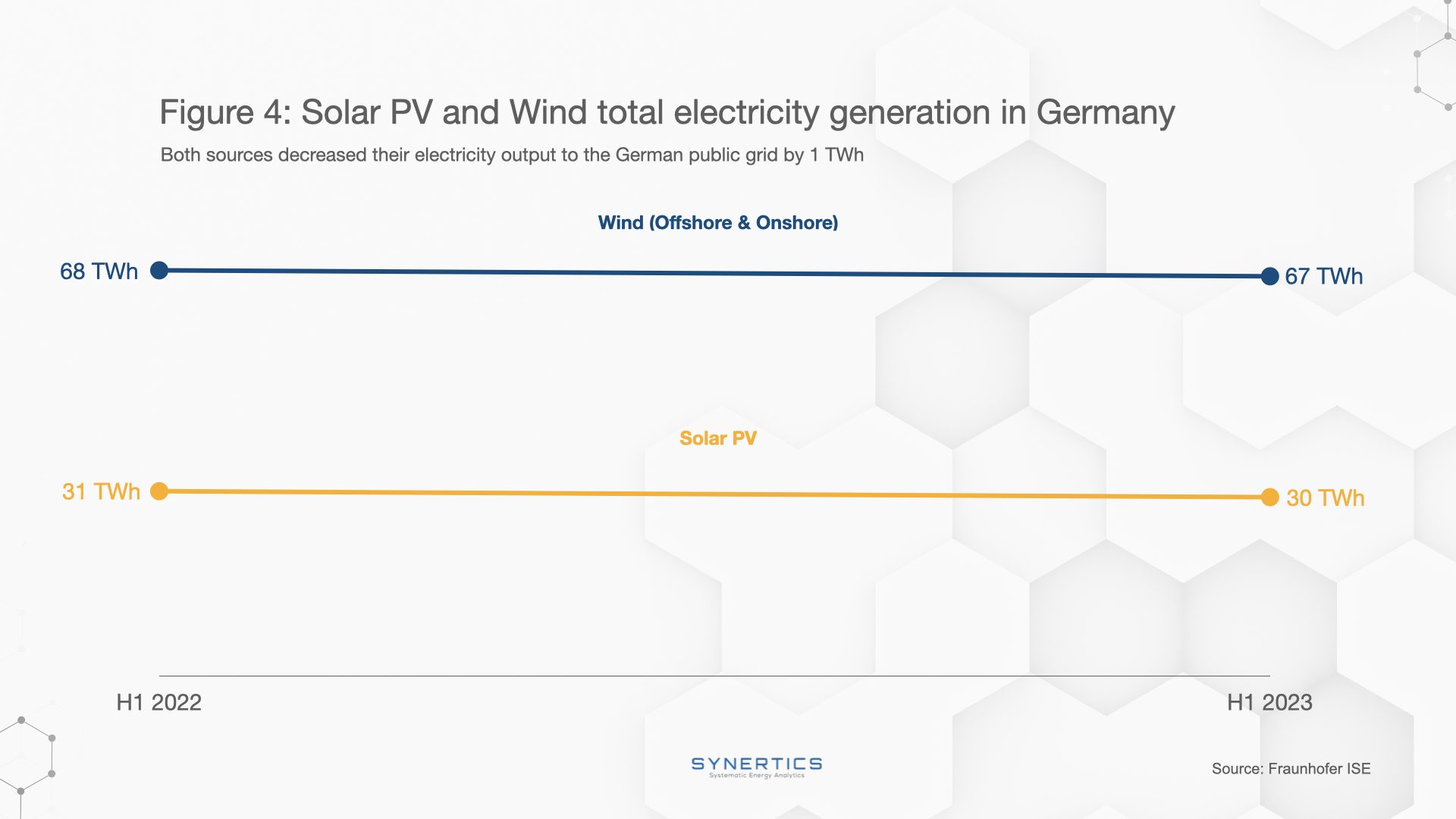
Electricity consumption in Germany during the first half of 2023 was 7% lower than in 2022. Given its crucial effect on price fluctuations, it is likely one of the main causes that have led to the decrease of power prices.
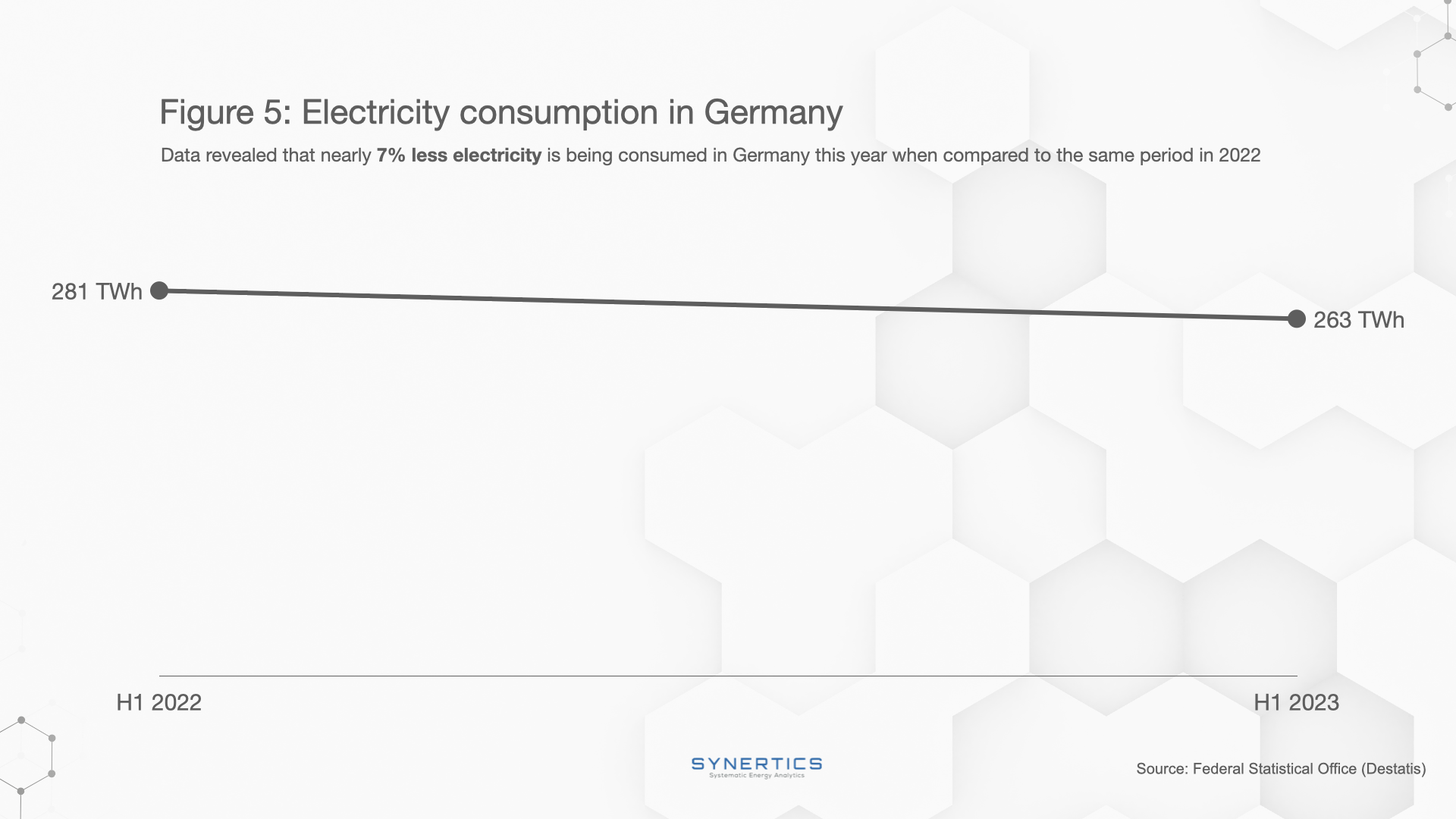
By examining the prices quoted in Futures contracts, it is possible to gain insights into the market's future power price expectations.
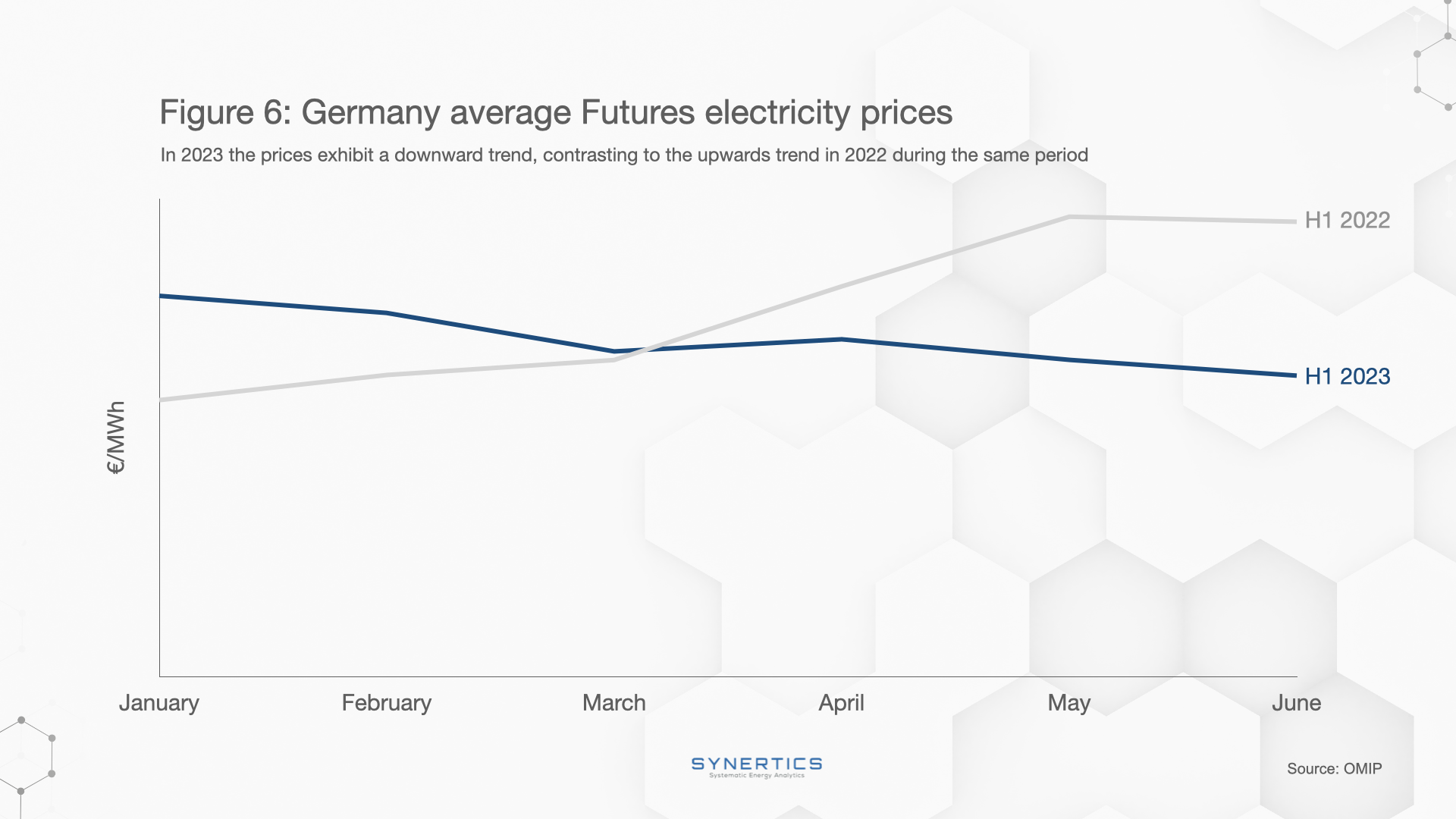
According to the data shown in the various figures, the notable shift in Futures price patterns between H1 2022 and H1 2023 have only slightly been attributed to renewable electricity generation and capacity fluctuations. More importantly, there were shifts in non-renewable prices (e.g. gas prices drop), weather patterns, and a significant decrease in electricity consumption. Moreover, factors like policy changes (e.g. the OPEC production cuts), weather conditions, and geopolitical events (such as the Russian invasion of Ukraine) are likely to have been linked to the current electricity price movement in the German electricity market.
Special thanks to Fraunhofer-Gesellschaft, Statistisches Bundesamt, Destatis, and OMIP - The Iberian Energy Derivatives Exchange for providing the public data sets used in this analysis.
Synertics provides advisory services and develops digital data-driven solutions for the energy industry with the purpose of driving productivity and transferring knowledge.
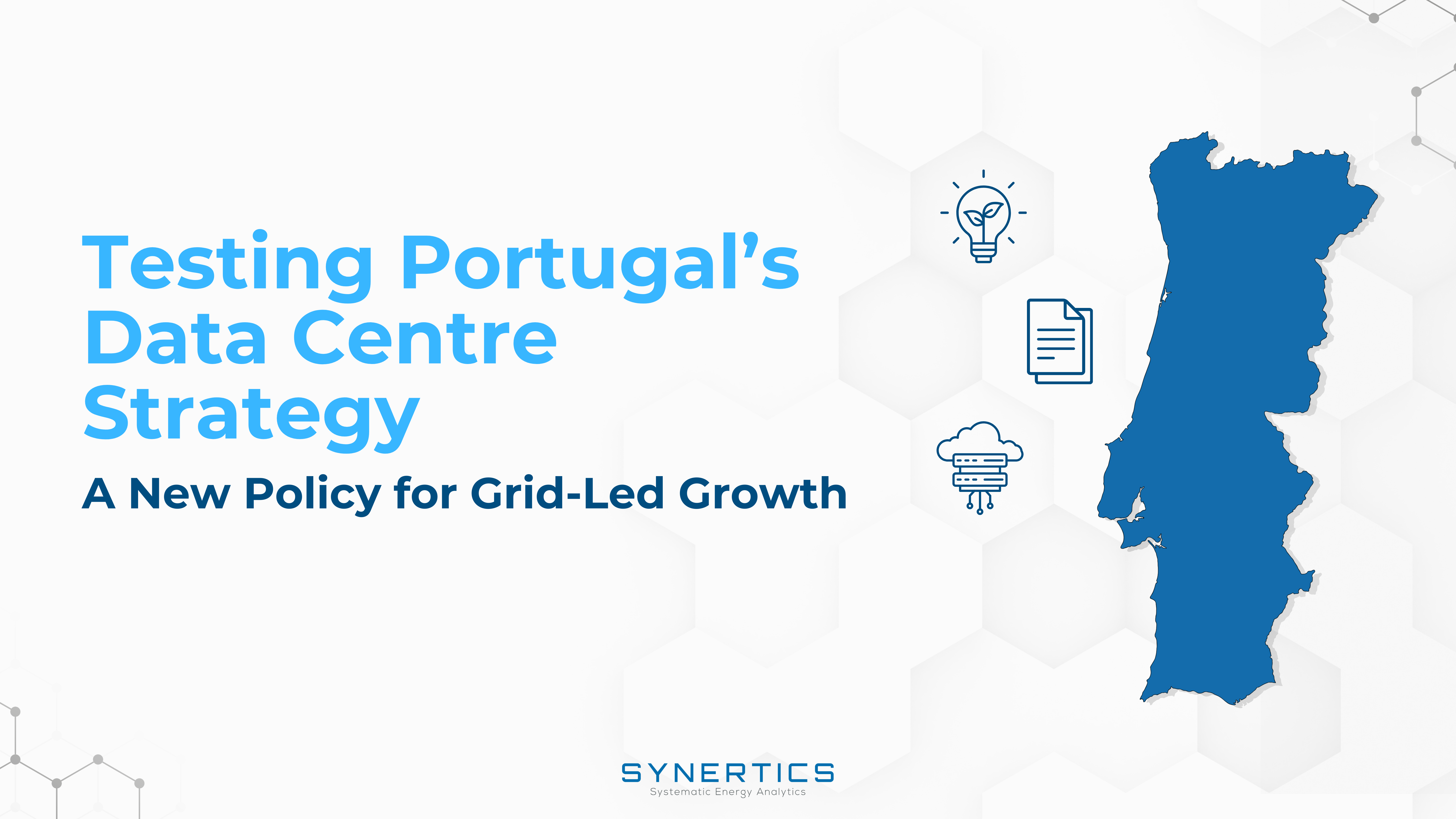
Market-trends
6th Feb, 2026
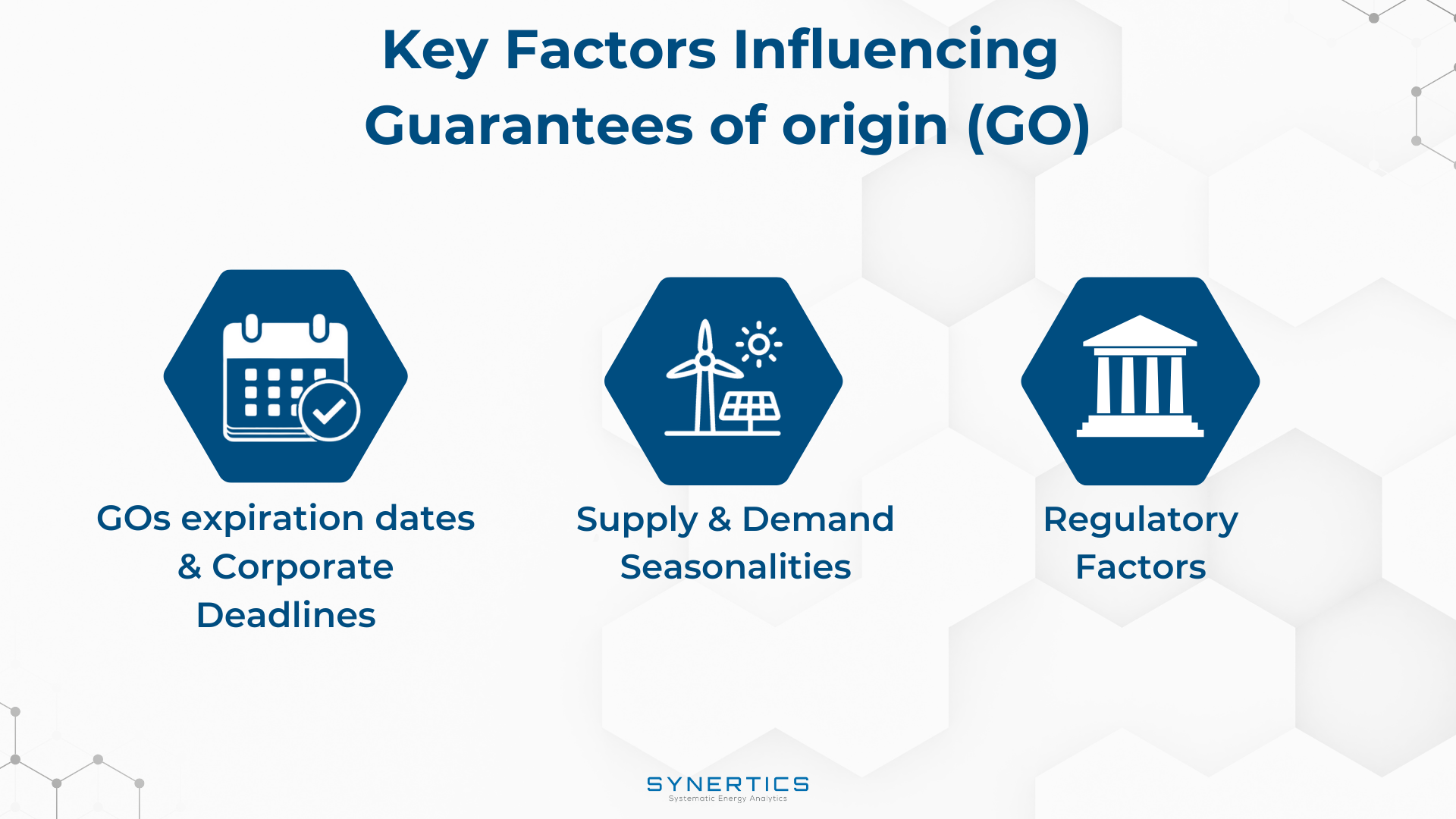
Insights, Market-trends
15th Dec, 2025
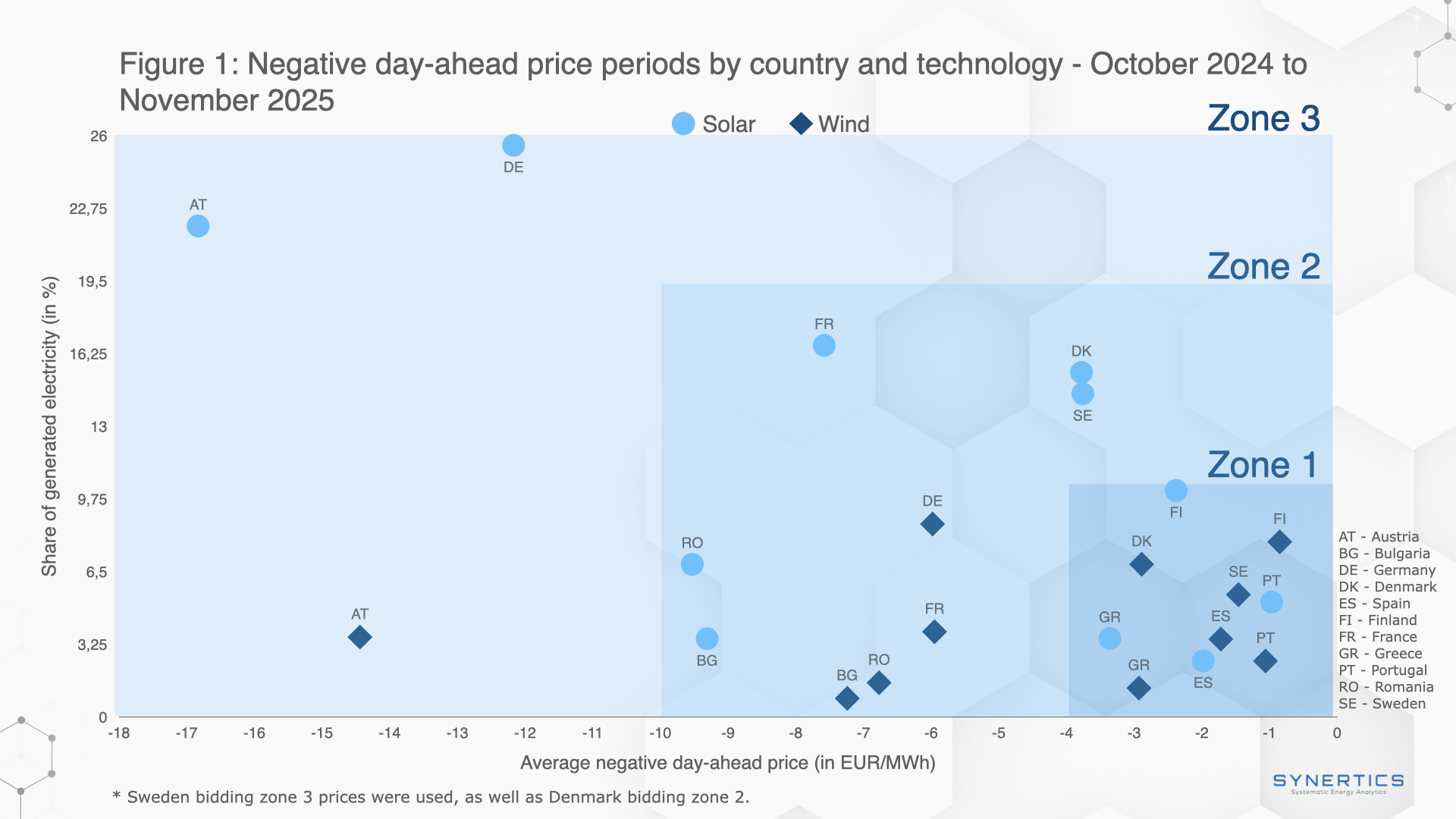
Market-trends, Projects
27th Nov, 2025